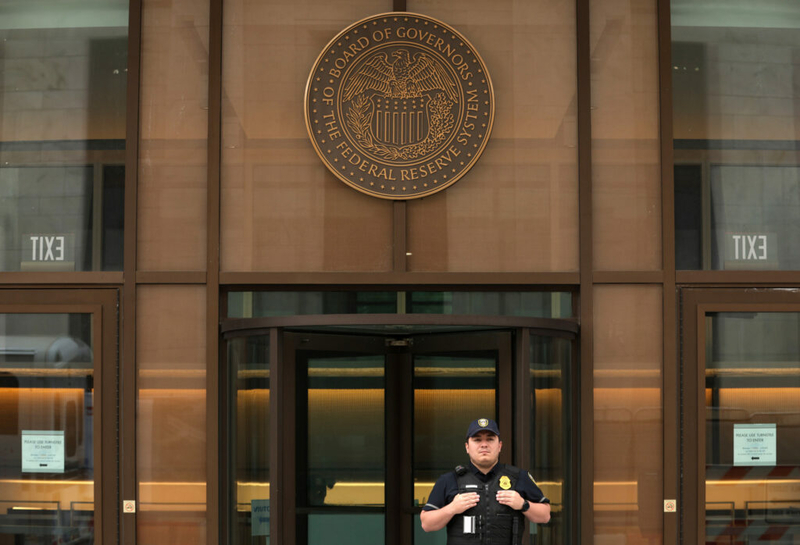Lawmakers hear dire warnings against danger of central digital currency

The concept of converting the U.S. monetary system into a federally controlled digital currency raised a host of horror stories when lawmaker and attorney Wyman Duggan spoke to colleagues at a state House committee.
Duggan, a Republican from Duval County who is sponsoring a digital currency bill, warned the move could give the government control over Americans’ rights under the First, Second, Fourth, Fifth, and Tenth amendments while putting commercial banks out of business in favor of a centralized government banking system.

The prospect is for an awesome abuse of power, Duggan argued before the House Commerce Committee.
“Now, the government is looking directly into your wallet at all times, and they’re looking directly at what you’re spending your money on. And if they deem potentially that for whatever reason of policy they don’t want to allow you to engage in those transactions, they can prohibit the transfer of money out of your CBDC wallet,” he said.
The committee voted along party lines Monday to endorse Duggan’s bill (PCB COM 23-02). House leaders will not decide which committees will review the measure as it advances (or not) to the House floor. Duggan said he didn’t know the status of any such legislation in the Senate.
“CBDC” stands for central bank digital currency, which means a digitized money supply controlled by a central bank, such as the U.S. Federal Reserve Bank. Last year, President Joe Biden ordered federal agencies to investigate the pros and cons of such a system, including that it could aid “unbanked” people too poor to maintain a commercial bank account.
DeSantis initiative
Duggan made his committee appearance one week to the day after Gov. Ron DeSantis announced his vehement opposition to “the reckless adoption of a centralized digital dollar which will stifle innovation and promote government-sanctioned surveillance. Florida will not side with economic central planners; we will not adopt policies that threaten personal economic freedom and security.”
The bill defines digital currency as “a digital medium of exchange, or a digital monetary unit of account issued by the United States Federal Reserve System, a federal agency, a foreign government, a foreign central bank, or a foreign reserve system, that is made directly available to a consumer by such entities.
“The term includes a digital currency, a digital medium of exchange, or a digital monetary unit of account issued by the United States Federal Reserve System, a federal agency, a foreign government, a foreign central bank, or a foreign reserve system, that is processed or validated directly by such entities.”
Roughly, the system would resemble cryptocurrencies but would be run not through decentralized servers but through the central bank.
The measure specifies that anything like that would not count as money in Florida.
Democrats sounded skeptical about the harms Duggan was describing.
Allison Tant, representing Madison and parts of Jefferson and Leon counties, noted language in a staff analysis of Duggan’s bill suggesting that passing the bill would place Florida crosswise of the U.S. Constitution’s Supremacy Clause, which gives the federal government control of the U.S. money supply.
“We’ll clearly have to have a court explore the contours of this relationship. But at this point in time, we in Florida are the first mover, in my opinion, on this issue,” Duggan said. He added that the Biden administration has yet to propose anything solid, and much less has Congress authorized a digital currency.
China
He pointed to China, which is ramping up a central digital currency amid fears it could aid the Chinese surveillance state. In the United States, such a system could be wielded against free expression, gun purchases, and more, allowing the government to seize citizens’ assets, Duggan warned.
Furthermore, the system “would completely replace the commercial banking sector in its role of providing credit and banking services to the public, because now that role will be taken by the central government,” Duggan said.
“So, yes, there are state actors that are pursing this model. I submit it does not comport with the American way.”
A Federal Reserve analysis published in January 2020 says any digital currency would “complement, rather than replace, current forms of money and methods for providing financial services.”
It also would “protect consumer privacy; “against criminal activity;” and “have broad support from key stakeholders.”
“The Federal Reserve does not intend to proceed with issuance of a CBDC without clear support from the executive branch and from Congress, ideally in the form of a specific authorizing law,” the central bank said.








